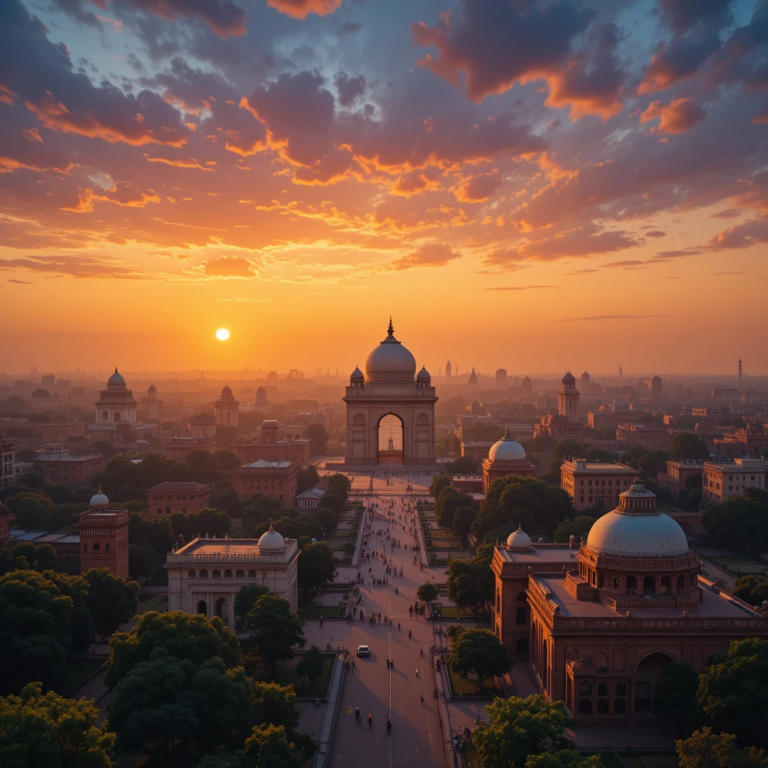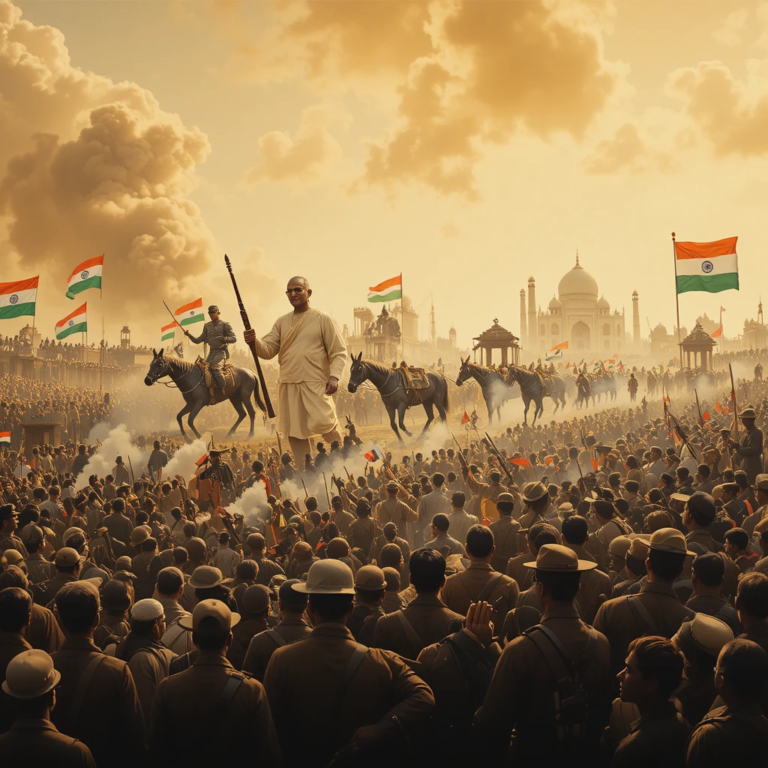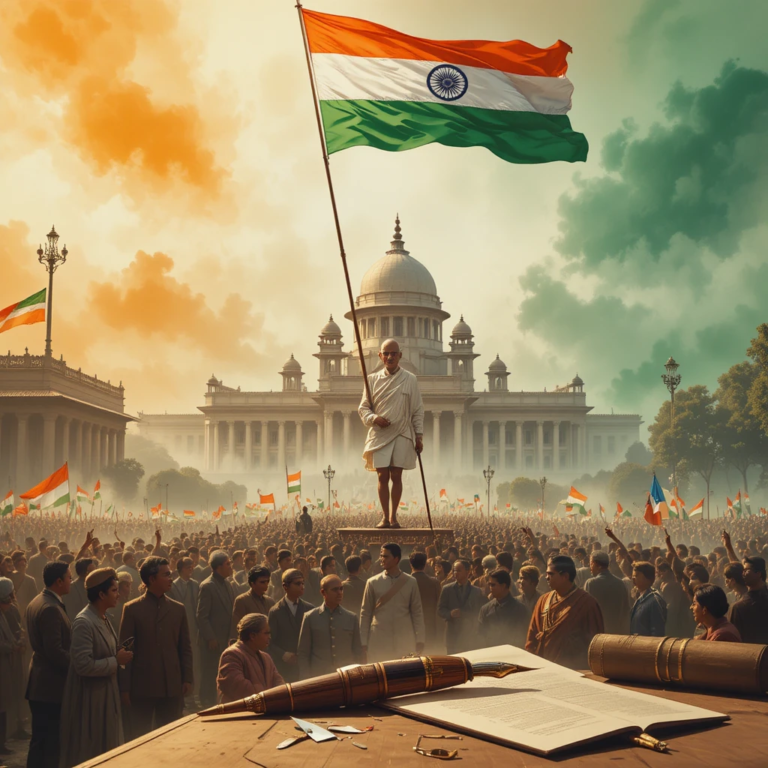Introduction
Leo Tolstoy, the Russian novelist-turned-philosopher, and Mahatma Gandhi, the architect of India’s non-violent independence movement, represent two of history’s most influential moral thinkers. Their ideological connection, rooted in Tolstoy’s writings on non-violence, love, and simplicity, profoundly shaped Gandhi’s approach to social and political change. While Tolstoy’s works like The Kingdom of God Is Within You and A Letter to a Hindu inspired Gandhi’s Satyagraha (non-violent resistance) and Ahimsa (non-harm), their brief correspondence from 1909 to 1910 solidified this influence. Gandhi, in turn, had little opportunity to impact Tolstoy, who was nearing the end of his life. This article revisits their relationship, integrating details of their early lives, key works, and historical evidence to illustrate Tolstoy’s transformative role in Gandhi’s philosophy, supported by primary sources, correspondence, and scholarly analyses.
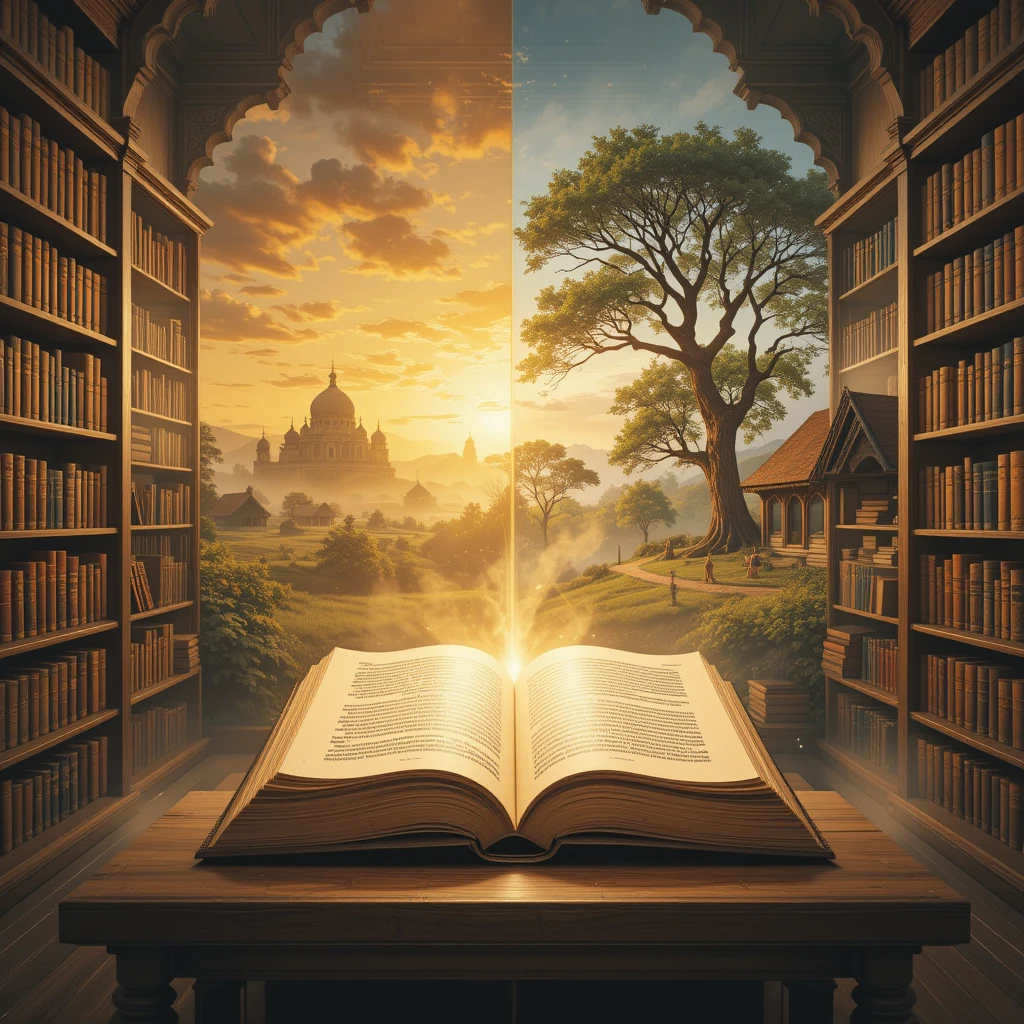
Table of Contents
Early Life of Leo Tolstoy
Born on September 9, 1828, at Yasnaya Polyana, a family estate near Tula, Russia, Lev Nikolayevich Tolstoy was the fourth of five children in an aristocratic family. His father, Count Nikolai Ilyich Tolstoy, a veteran of the 1812 Patriotic War, and his mother, Princess Mariya Tolstaya (née Volkonskaya), provided a privileged upbringing until tragedy struck: Tolstoy’s mother died when he was two, and his father passed away when he was nine. Raised by relatives, Tolstoy developed an introspective nature that later permeated his writings.
Educated at home initially, Tolstoy entered Kazan University in 1844 to study law and oriental languages but struggled academically, leaving without a degree. His early twenties were marked by a dissipated lifestyle in Moscow and Saint Petersburg, accumulating gambling debts. Seeking purpose, he joined the army in 1851 with his brother in the Caucasus, later serving as an artillery officer in the Crimean War (1854–1855). Experiences at the Siege of Sevastopol and Battle of the Chernaya, where he earned a promotion to lieutenant, exposed him to war’s horrors, planting seeds for his later pacifism.
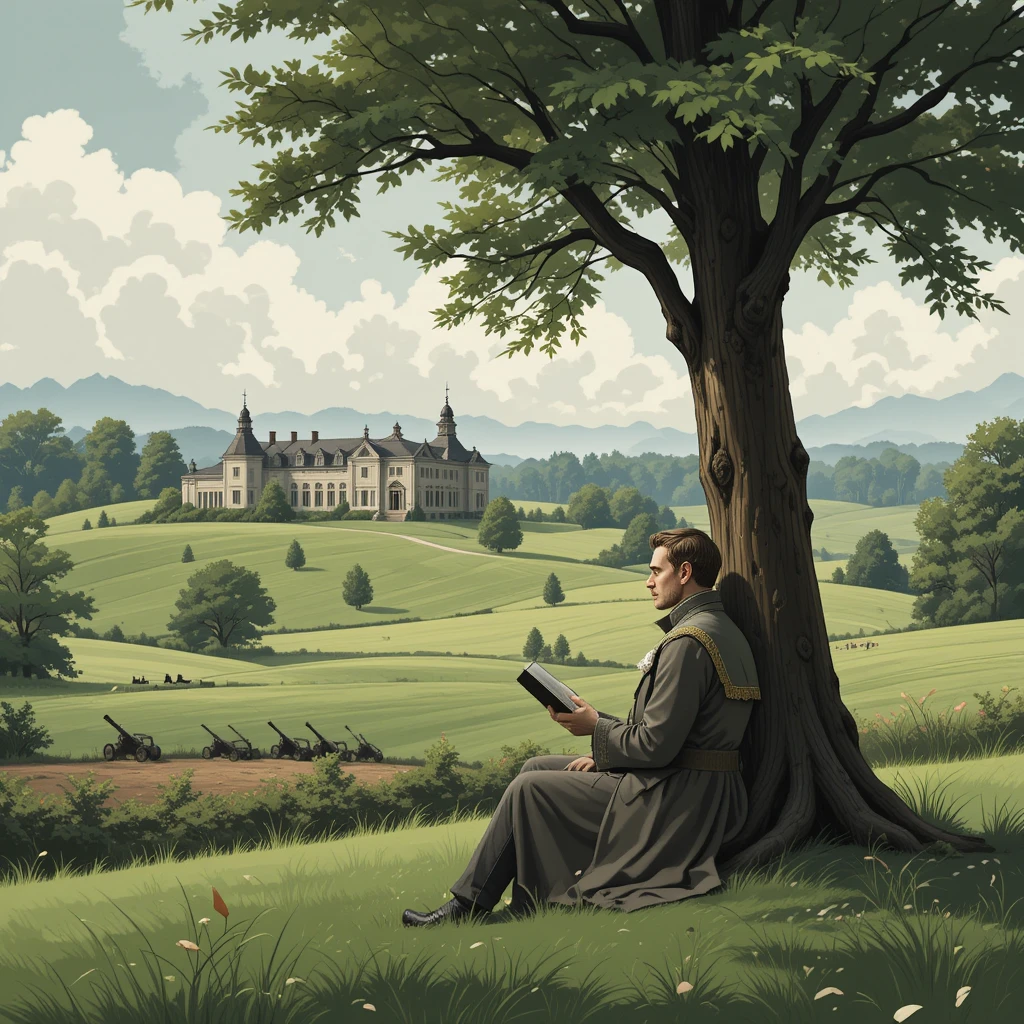
Key Works of Leo Tolstoy
Tolstoy’s literary career began with the semi-autobiographical trilogy Childhood (1852), Boyhood (1854), and Youth(1857), exploring personal growth and morality. His Sevastopol Sketches (1855–1856) gained acclaim for their vivid war accounts. Literary masterpieces War and Peace (1869), an epic on history and human destiny, and Anna Karenina(1878), a tragic exploration of love, cemented his global reputation.
A spiritual crisis in the late 1870s shifted Tolstoy toward philosophy. A Confession (1882) detailed his rejection of materialism, while The Kingdom of God Is Within You (1894) articulated Christian anarchism, advocating non-violent resistance based on the Sermon on the Mount. Resurrection (1899) critiqued societal injustices. In 1908, A Letter to a Hindu addressed India’s colonial struggle, urging non-violence and citing texts like the Tirukkuṟaḷ, directly impacting Gandhi. Tolstoy’s later works emphasized simplicity, vegetarianism, and “bread labor” (manual work for self-sufficiency).

Early Life of Mahatma Gandhi
Mohandas Karamchand Gandhi was born on October 2, 1869, in Porbandar, Gujarat, India, into a Modh Bania family under British colonial rule. The youngest of four, Gandhi was shaped by his father, Karamchand Gandhi, diwan of Porbandar, and his devout mother, Putlibai, whose Jain-influenced practices of fasting and non-violence left a lasting imprint. Moving to Rajkot in 1874, Gandhi attended local schools, excelling modestly but showing a penchant for reading.
At 13, Gandhi married Kasturba Makhanji in 1883, a union that briefly disrupted his studies. He graduated high school in 1887 and briefly attended Samaldas College before departing for London in 1888 to study law at University College London and the Inner Temple, defying caste norms. Called to the bar in 1891, he returned to India but struggled as a lawyer in Bombay. In 1893, he accepted a legal contract in South Africa, where racial discrimination—such as his ejection from a first-class train in Pietermaritzburg—sparked his activism.
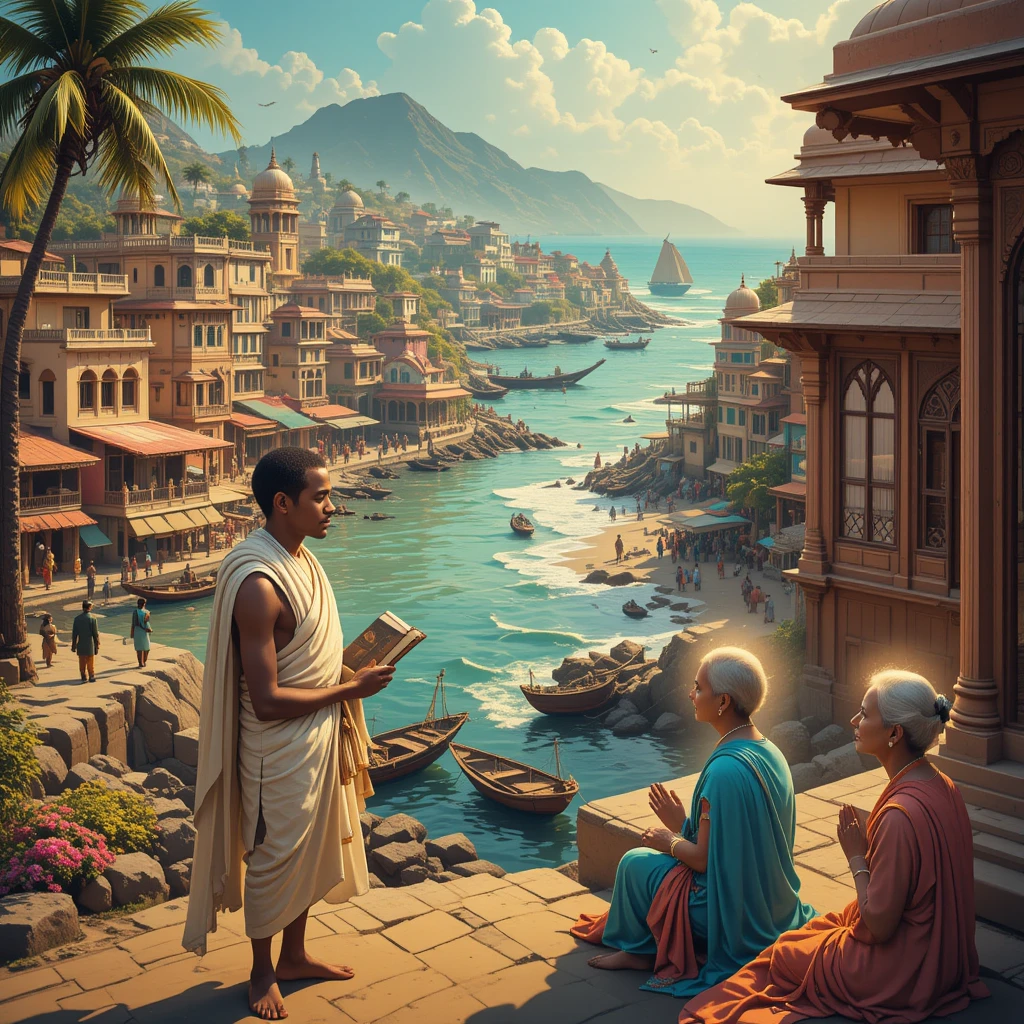
Key Works of Mahatma Gandhi
Gandhi’s writings were practical, aimed at mobilizing and educating. He edited Indian Opinion (1903–1914) in South Africa, advocating non-violence. Hind Swaraj (1909) outlined self-rule through non-cooperation, reflecting Tolstoyan ideas. His autobiography, The Story of My Experiments with Truth (1927–1929), chronicled his spiritual and political evolution, citing Tolstoy’s influence. Satyagraha in South Africa (1928) detailed his campaigns, while journals like Young India (1919–1932), Navajivan (1919–1931), and Harijan (1933–1948) spread his philosophy. His 1908 paraphrase of Ruskin’s Unto This Last echoed Tolstoy’s economic simplicity.

Tolstoy’s Philosophy: A Beacon for Non-Violence
By his later years, Tolstoy rejected violence, state authority, and organized religion, advocating a universal ethic of love in The Kingdom of God Is Within You (1894). He interpreted Jesus’ “resist not evil” as a call for passive resistance, influencing global pacifism. In A Letter to a Hindu (1908), responding to Tarak Nath Das, Tolstoy urged India’s liberation through non-violence, drawing parallels with Hindu texts. His lifestyle—vegetarianism, manual labor, and asceticism at Yasnaya Polyana—embodied these ideals, inspiring practical reform.
Gandhi’s Encounter with Tolstoy
In South Africa, Gandhi initially endorsed violence but transformed after reading Tolstoy’s The Kingdom of God Is Within You in 1894, which he said “overwhelmed” him. In 1909, while in London, he received A Letter to a Hindu from Free Hindustan, resonating with his evolving views on Ahimsa. This inspired his 1906 Transvaal campaign, birthing Satyagraha.
The Correspondence: A Philosophical Exchange
From 1909 to 1910, Gandhi and Tolstoy exchanged seven letters, preserved in Mahatma Gandhi and Leo Tolstoy: Letters (1987). Gandhi’s October 1, 1909, letter described South Africa’s Indian struggle, seeking Tolstoy’s guidance. Tolstoy’s October 7 reply supported “gentleness” over “brutality.” Gandhi sent Hind Swaraj in April 1910, and Tolstoy’s final letter on September 7, 1910, days before his death, reaffirmed non-violence as “the law of love.”
Tolstoy’s Influence on Gandhi’s Philosophy and Practice
Tolstoy’s ideas shaped Gandhi in several ways:
- Non-Violence (Satyagraha and Ahimsa): Tolstoy’s non-resistance inspired Satyagraha, applied in India’s independence movement (1918–1947). Gandhi credited Tolstoy for revealing “the infinite possibilities of universal love.”
- Simplicity and Bread Labor: Tolstoy’s manual labor advocacy led to Gandhi’s ashram practices and “Tolstoy Farm” in 1910.
- Moral Diet: Tolstoy’s The First Step (1892) reinforced Gandhi’s vegetarianism, linked to Ahimsa, and his study of the Tirukkuṟaḷ in prison.
Historical Evidence and Broader Impact
Gandhi’s autobiography confirms Tolstoy’s “abiding impression.” The 1905 Russian Revolution spread Tolstoy’s banned works, reaching Gandhi. His ideas, via Gandhi, influenced Mandela and King. No evidence suggests Gandhi influenced Tolstoy, given the latter’s death in 1910.
Conclusion
Tolstoy’s early struggles and philosophical evolution, reflected in his profound works, provided Gandhi—a man shaped by his own modest beginnings—with a framework to challenge colonial oppression. Their correspondence bridged cultures, cementing Tolstoy’s legacy in Gandhi’s global impact.
Sources Used
- Primary Sources:
- Tolstoy, Leo. The Kingdom of God Is Within You (1894).
- Tolstoy, Leo. A Letter to a Hindu (1908).
- Gandhi, Mahatma. The Story of My Experiments with Truth (1927).
- Gandhi, Mahatma. Hind Swaraj (1909).
- Murthy, B. Srinivasa (Ed.). Mahatma Gandhi and Leo Tolstoy: Letters (1987).
- Secondary Sources:
- Parel, Anthony J. “Gandhi and Tolstoy” in Meditations on Gandhi (2002).
- Lavrin, Janko. “Tolstoy and Gandhi” (JSTOR).
- Bjursten, Nadine. “How Leo Tolstoy Influenced Mahatma Gandhi” (Medium, 2022).
- Wikipedia: Leo Tolstoy (https://en.wikipedia.org/wiki/Leo_Tolstoy).
- Wikipedia: Mahatma Gandhi (https://en.wikipedia.org/wiki/Mahatma_Gandhi).

